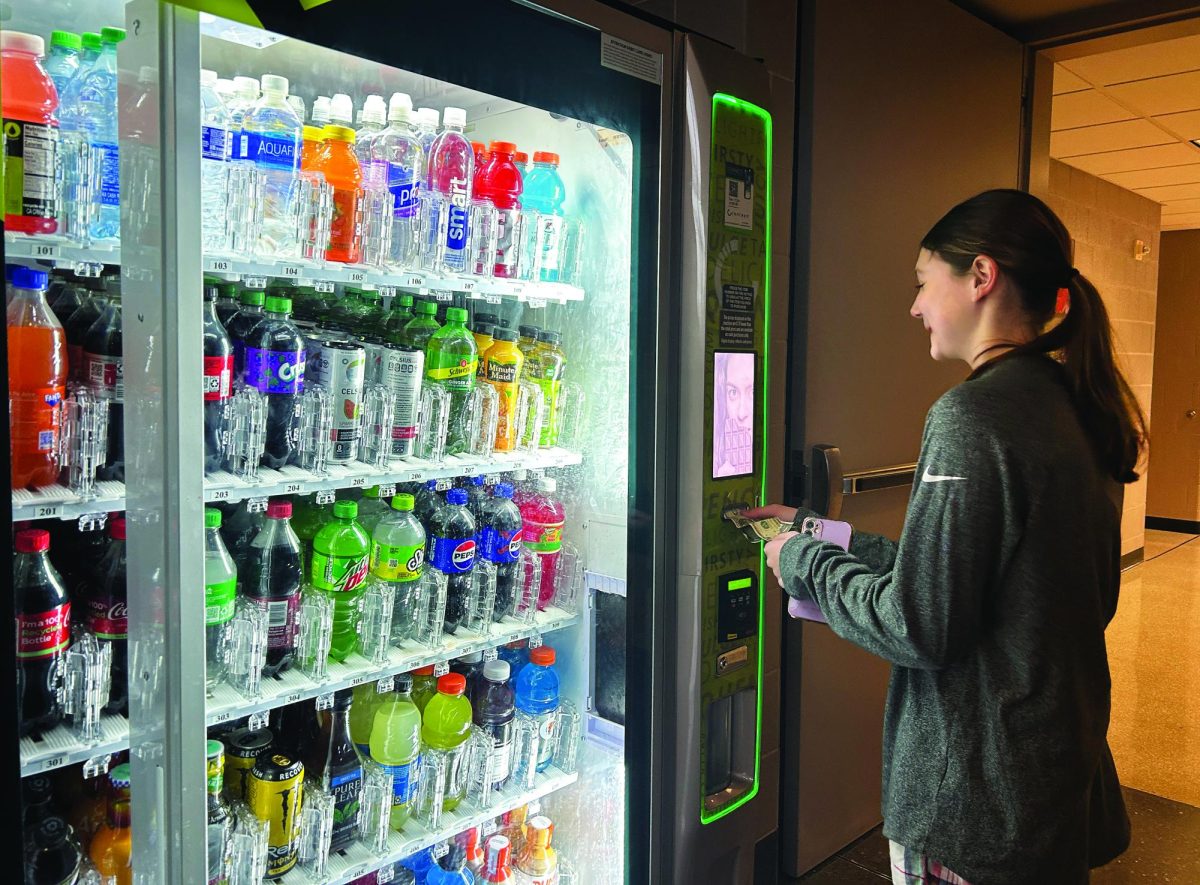By adding quantities of ingredients that meet or exceed the daily allowance for teens, some energy drinks may cause dangerous health effects.
According to the National Library of Medicine (NLM), consumption of energy drinks in the U.S. has increased rapidly in the past two decades.
However, the NLM states that, while energy drinks often advertise that they “give an energy boost to improve physical and cognitive performance,” that studies supporting this are few and far between.
Energy drink companies like Celsius and PRIME have recently been advertising towards teens, meanwhile, these drinks can have around 200mg of caffeine in a 12oz can, which heavily exceeds the limit for adolescents.
“And others will reference, not energy drinks, but caffeine should be limited to 100mg, which most energy drinks will exceed in one can alone. Depending on the can that they pick too, some of them are loaded with added sugars,” dietitian Kristi Ruth said.
According to Ruth, this high amount of caffeine can have numerous physical effects on teens, including increased blood pressure, heart rate and dehydration.
Ruth said that teens’ “younger bodies” are “more sensitive” to caffeine than adults’ bodies.
While physical effects hold a prominent portion of the side effects, the mental effects can be seen more clearly in some students.
According to freshman Ashlyn Manley, she often feels anxious after drinking Monsters, a popular energy drink.
“Sometimes there [have] been times when I get very shaky after drinking a [Monster]. I get really stressed out and anxious and it’s an overall bad feeling because it feels like a panic attack.”
The beginning of freshman year is when Manley felt she “needed it the most” due to the energy the drink provided as well as managing the stress and class workload.
Freshman Adelyn Besnard believes her Celsius will help keep up her energy on long school days with sports practices included.
“I have swim practice after school, and just so I’m not dreading it and I’m a little more awake, I have one before or during the practice,” Besnard said. “Otherwise I try to control how much I drink because I know how bad some ingredients can be for teens, even though I see a lot of students drink them.”
Both Besnard and Manley said they can see the negative effects these drinks have on students from high amounts of caffeine as well as ingredients containing more caffeine.
“The positive effects are few and far between. I think what most kids are looking for is the energy boost, but with anything that has a high boost like that, there is bound to be a crash that follows at some point,” wellness teacher Chris Nenstiel said.
According to Nenstiel, with the high amounts of caffeine in many energy drinks, these drinks can become “addictive,” which is the main issue..
With the crashes from these drinks that students can experience, Nenstiel believes that is what also keeps teens consuming more than one energy drink a day to prevent crashing.
For sophomore Carol Descher, “with long school days and then practice after, it gets to be a lot.”
Descher said that she hasn’t been drinking more than one energy drink during school days.
Descher said that she doesn’t want it to “affect her focus” during classes and swim practice.
Besnard agrees.
“Some people who drink them often say they can’t really focus and some of my friends have even told me they have a hard time concentrating on homework and sports,” Besnard said, “which is why I don’t drink them every day.”
Energy drinks contain dangerous caffeine levels, possible health risks for teenagers
With the desire to increase energy in classes and activities, the need for energy drinks has become more common among teens. Certain energy drink companies have been advertising towards adolescents, even though many are not recommended for anyone under 18.
Buying a boost…Purchasing a Celsius energy drink at one of the high school’s vending machines, freshman Adelyn Besnard hopes to increase her energy for after school swim practice.
0
More to Discover
About the Contributor

Kendal Hoover, Staff Writer






